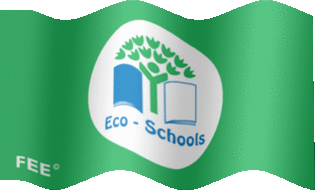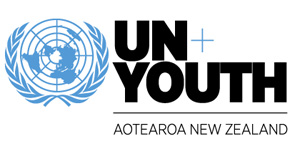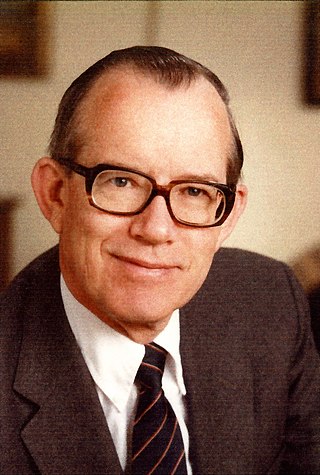Related Research Articles
Engineers Without Borders International (EWB-I) is an association of individual Engineers Without Borders/Ingénieurs sans frontières groups. EWB-I facilitates collaboration and the exchange of information among the member groups. EWB-I helps its member groups develop their capacity to assist underserved communities in their respective countries and around the world.

Engineers Without Borders Canada, abbreviated EWB or ISF, is a non-governmental organization devoted to international development. Founded in 2000 by George Roter and Parker Mitchell, engineering graduates from the University of Waterloo, it is a registered Canadian charity focused on finding solutions to extreme poverty, specifically in rural Africa. The group has chapters at universities across Canada, and regional chapters aimed at professionals in several major cities.
Engineers Without Borders – USA (EWB–USA) is a non-profit humanitarian organization. It represents the United States within the larger international Engineers Without Borders in the U.S. It involves the implementation of sustainable engineering projects, while involving and training engineers and engineering students.
International education refers to a dynamic concept that involves a journey or movement of people, minds, or ideas across political and cultural frontiers. It is facilitated by the globalization phenomenon, which increasingly erases the constraints of geography on economic, social, and cultural arrangements. The concept involves a broad range of learning, for example, formal education and informal learning. It could also involve a reorientation of academic outlook such as the pursuit of "worldmindedness" as a goal so that a school or its academic focus is considered international. For example, the National Association of State Universities prescribes the adoption of "proper education" that reflects the full range of international, social, political, cultural, and economic dialogue. International educators are responsible for "designing, managing, and facilitating programs and activities that help participants to appropriately, effectively, and ethically engage in interactions with culturally diverse people and ideas."

Engineers for a Sustainable World (ESW) is a not-for-profit network headquartered in Pittsburgh, PA, USA. ESW is an umbrella organization with chapters established at over 50 colleges, universities, and city chapters located primarily in the United States and Canada ESW members work on technical design projects that have a focus on sustainability and environmental issues. Projects can be located either on-campus, in the local community, or internationally. Chapters are made up of students or professionals and are semi-autonomous.

Eco-Schools is an international programme of the Foundation for Environmental Education (FEE) that aims to “empower students to be the change our sustainable world needs by engaging them in fun, action-orientated, and socially responsible learning.”
Humanitarian engineering is the application of engineering for humanitarian aid purposes. As a meta-discipline of engineering, humanitarian engineering combines multiple engineering disciplines in order to address many of the world's crises and humanitarian emergencies, especially to improve the well-being of marginalized populations.
Engineers Without Borders (EWB) Palestine is a Palestine-based registered charity and NGO. Its mission is to "partner with Palestinian disadvantaged communities to improve their quality of life through the implementation of environmentally and economically sustainable engineering projects, while developing internationally responsible engineers and engineering students."
Engineers Without Borders New Zealand (EWBNZ) is a not-for-profit organisation based in New Zealand who champion humanitarian engineering as a means to improve community well-being, opportunity and alleviate poverty in all its forms. The organisation is member-based and incorporates several chapters of professional engineers, in Auckland, Hamilton, Wellington and Christchurch as well as two student chapters, from the University of Canterbury and the University of Auckland.

Engineers Australia (EA), known formally as the Institution of Engineers, Australia, is an Australian professional body and not-for-profit organisation whose purpose is to advance the science and practice of engineering for the benefit of the community. Engineers Australia is Australia's recognized organization for accreditation of professional engineering qualifications under the Washington Accord. As of 2022, EA has 115,000 members, which includes 31,000 students.
The term Engineers Without Borders is used by a number of non-governmental organizations in various countries to describe their activity based on engineering and oriented to international development work. All of these groups work worldwide to serve the needs of disadvantaged communities and people through engineering projects. Many EWB national groups are developed independently from each other, and so they are not all formally affiliated with each other, and their level of collaboration and organizational development varies. The majority of the EWB/ISF organizations are strongly linked to academia and to students, with many of them being student-led.
Engineers Without Borders Ireland is an international development organisation for students and professionals from Ireland who share a common interest in sustainable development through engineering and appropriate technologies.

Engineering for Change (E4C) is an online platform and international community of engineers, scientists, non-governmental organizations, local community advocates and other innovators working to solve problems in sustainable global development. Their mission is to 'prepare, educate, and activate the international technical workforce to improve the quality of life of people and the planet.'

UN Youth New Zealand is a non-governmental organisation and a registered charity. Its members are all aged 25 or under or are full-time tertiary students. It is the largest youth-for-youth organisation in New Zealand. Annually, over 3,000 young New Zealanders (Kiwis) engage with a UN Youth event.
Engineers Without Borders – Lebanon (EWB–Lebanon) is a non-profit group of engineers dedicated to public work and sustainable development. The group aims to help disadvantaged communities throughout Lebanon.

Donald Van Norman Roberts was a civil, geotechnical and environmental engineer from the United States, and advocate for sustainability developments in engineering.

Labdoo is a non-profit organization that provides, free of charge, refurbished laptops loaded with child-friendly educational software in local languages to schools, orphanages, and refugee projects in low-income countries around the world. The organization is dedicated to not incurring additional economic cost nor contributing to the generation of CO2 emissions. Through its global network of grassroots volunteers connected through more than 400 operational hubs, it has provided its services to more than 700,000 students.

Guillermo "Bill" Capati, is an adjunct professor and professional engineer in the field of civil and environmental engineering. Currently, Capati is an adjunct professor at the University of Queensland since December 2008.
The Commonwealth Engineers' Council (CEC) is a network of professional engineering institutions of the Commonwealth, established to foster cooperation and exchange of information, support the development of indigenous engineering institutions, and foster the education, training and professional development of engineers. The CEC is an affiliated organisation of The Commonwealth.
Marlene Kanga is an Australian engineer, entrepreneur, and diversity activist, who was awarded Queens Birthday honours in 2022. She was appointed an officer of the Order of Australia for her substantial service to Engineering, particularly as a global leader and role model to women to professional organisations, and to business.
References
- ↑ About Us
- ↑ Why We Exist
- ↑ Cunningham, I (2019). "Participation and power dynamics between international non-governmental organisations and local partners: A rural water case study in Indonesia". Water Alternatives. 12 (3): 953–974.
- ↑ Linda Briskman, Alexander Jarema, Stephanie Kuek and Jennifer Martin. (Autumn 2013). Without Borders: Fostering Development Studies in Social Work. Development, Education, Review. (Melbourne, Australia).
- ↑ (3 December 2017). UN Sustainability Goals – Event Summary.
- ↑ Everett, Carys. (November 2017). The People Centred Approach to Technology that is Making a Difference in our Communities. Pure Advantage. (New Zealand)
- ↑ (20 January 2016). Engineering a better future: South Australian engineer leads innovation at Engineers without Borders. News Leads. Stories from across the Asia Pacific. (Australia).
- ↑ (1-3 December 2005). Engineering a Better World. University of Melbourne. (Australia).
- ↑ Campbell, Eric. (26-28 November). Eric Campbell: Reporting on the World. (Melbourne, Australia).
- ↑ (5-7 December 2011). 2011 AAEE Conference. (Fremantle, Western Australia).
- ↑ (16 December 2017). UC students win Engineers Without Borders innovation award. University of Canterbury. (New Zealand).
- ↑ "Engineers Without Borders_ACNC GROUP". 30 March 2021.